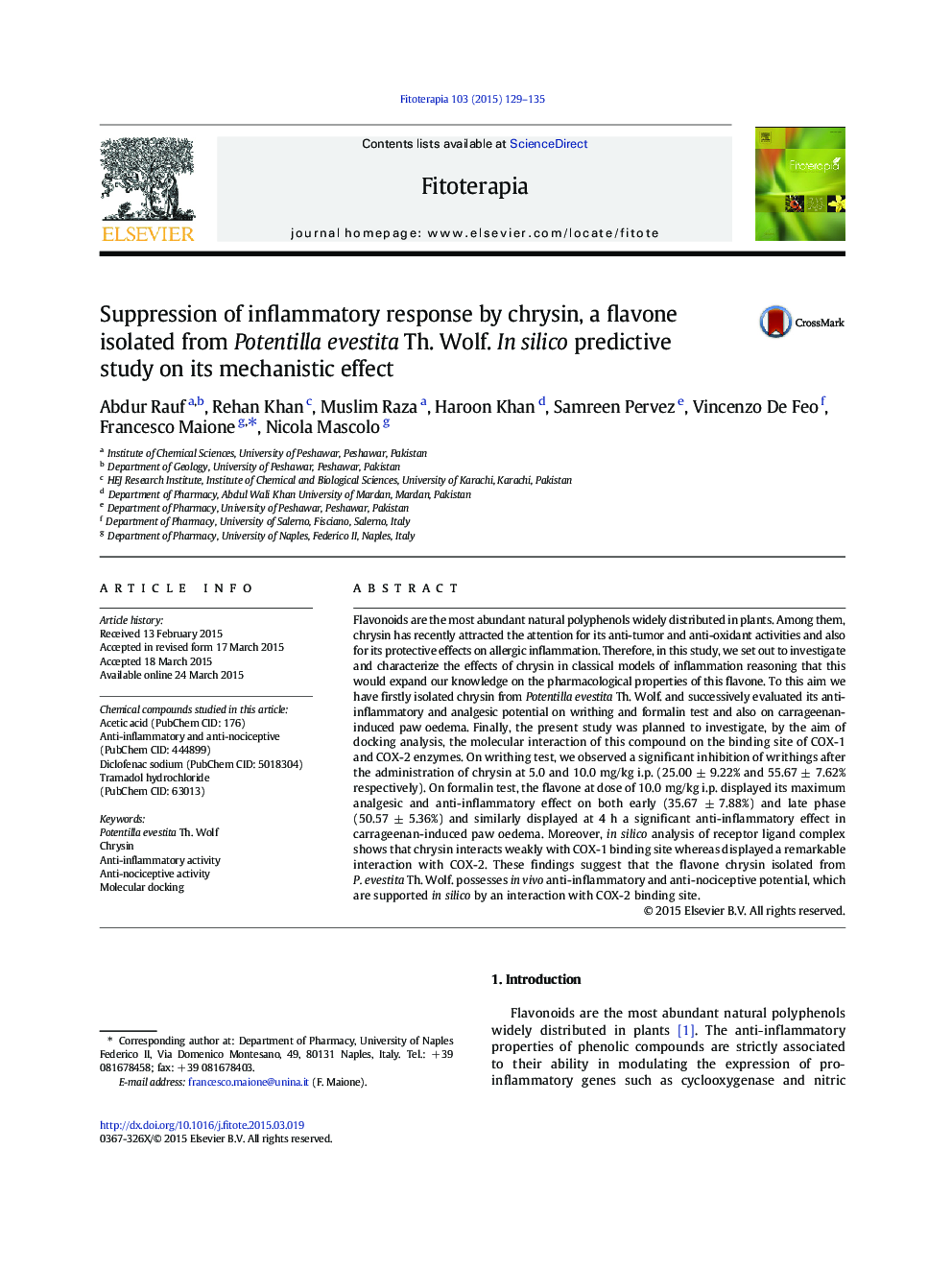| کد مقاله | کد نشریه | سال انتشار | مقاله انگلیسی | نسخه تمام متن |
|---|---|---|---|---|
| 2538347 | 1559642 | 2015 | 7 صفحه PDF | دانلود رایگان |

Flavonoids are the most abundant natural polyphenols widely distributed in plants. Among them, chrysin has recently attracted the attention for its anti-tumor and anti-oxidant activities and also for its protective effects on allergic inflammation. Therefore, in this study, we set out to investigate and characterize the effects of chrysin in classical models of inflammation reasoning that this would expand our knowledge on the pharmacological properties of this flavone. To this aim we have firstly isolated chrysin from Potentilla evestita Th. Wolf. and successively evaluated its anti-inflammatory and analgesic potential on writhing and formalin test and also on carrageenan-induced paw oedema. Finally, the present study was planned to investigate, by the aim of docking analysis, the molecular interaction of this compound on the binding site of COX-1 and COX-2 enzymes. On writhing test, we observed a significant inhibition of writhings after the administration of chrysin at 5.0 and 10.0 mg/kg i.p. (25.00 ± 9.22% and 55.67 ± 7.62% respectively). On formalin test, the flavone at dose of 10.0 mg/kg i.p. displayed its maximum analgesic and anti-inflammatory effect on both early (35.67 ± 7.88%) and late phase (50.57 ± 5.36%) and similarly displayed at 4 h a significant anti-inflammatory effect in carrageenan-induced paw oedema. Moreover, in silico analysis of receptor ligand complex shows that chrysin interacts weakly with COX-1 binding site whereas displayed a remarkable interaction with COX-2. These findings suggest that the flavone chrysin isolated from P. evestita Th. Wolf. possesses in vivo anti-inflammatory and anti-nociceptive potential, which are supported in silico by an interaction with COX-2 binding site.
Figure optionsDownload high-quality image (114 K)Download as PowerPoint slide
Journal: Fitoterapia - Volume 103, June 2015, Pages 129–135